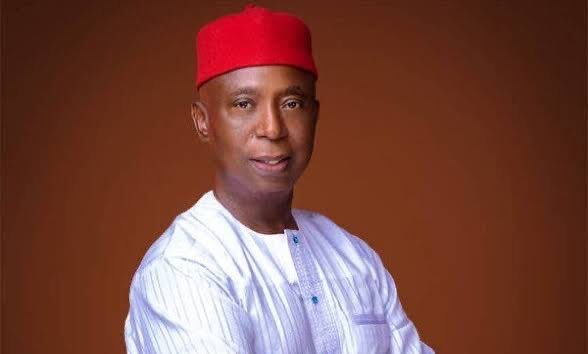Senator Ned Nwoko, representing Delta North in the Senate, has outlined key steps Nigeria must take to reclaim its potential as a truly independent and prosperous nation.
In his Independence Day message titled ‘Nigeria @64: The Imperative for Economic Sovereignty and a National Social Safety Net’, Mr Nwoko emphasised the need for the country to lay solid foundations, build enduring institutions, and establish a vision that benefits both current and future generations.
He further noted that Nigeria must address critical developmental gaps, particularly in key sectors where progress has been slow.
Mr Nwoko attributed the nation’s failure to meet these expectations largely to internal contradictions and external pressures—challenges that Nigeria has either enabled or exacerbated.
According to him, neocolonialism and the absence of a strong national social safety net are two of the most significant obstacles to Nigeria’s progress.
The statement read partly: “As Nigeria marks 64 years of independence, I find myself reflecting on the nation’s journey having been born in the same year. Approaching my 64th birthday this December, I cannot help but question whether this is the Nigeria those who fought for its independence envisioned, or indeed, the Nigeria we ought to have achieved by now.
“Sixty-four years is more than sufficient time for a nation to lay solid foundations, build enduring structures, and craft a vision that serves both its people and posterity. While we have undoubtedly made progress in certain areas, the gaps in our development, particularly in critical sectors, are glaring.”
The 63-year-old remarked that Nigeria has been bound by the lingering chains of neocolonialism for over six decades.
The PDP member stated that since achieving political independence, the nation has continuously struggled with a form of subjugation that is arguably even more insidious: the persistent economic, political, and cultural dependency that keeps us tethered to external influences.
“Neocolonialism manifests itself through unfair trade practices, external political interference, and the persistent exploitation of our resources. More concerning, we have often been complicit in our subjugation—consciously or unconsciously enabling this dependency through policy choices that prioritize foreign interests over national sovereignty.
“Why, after 64 years of independence, do we continue to rely so heavily on the West? Why have we allowed ourselves to remain consumers, rather than becoming producers? Why have we surrendered control over the value of our currency, and by extension, our economic sovereignty?”, the statement further added.
Mr Nwoko highlighted the alarming decline of Nigeria’s currency, the Naira, which continues to weaken sixty-four years after the country gained independence.
He stated that the ongoing depreciation of the Naira, especially against major global currencies like the dollar, is further aggravated by the ill-advised practice of paying for professional services in foreign currencies.
“This has become a drain on our economy, and it must be stopped. One of the critical gaps in our regulatory framework is the absence of an explicit prohibition against the use of foreign currencies in local transactions, particularly in payment for services.
“This loophole in the Central Bank of Nigeria Act and the Foreign Exchange Act has allowed exploitative practices to persist unchecked. It was in recognition of this that I presented “A Bill for an Act to Amend the Central Bank of Nigeria Act, 2007, No. 7, to Prohibit the Discriminatory Use of Foreign Currency for Remuneration and Matters Connected Therewith.”
Mr Nwoko noted that it is time for all domiciliary accounts in the country to be converted to Naira, emphasising that these accounts have become channels for speculative activities and arbitrage, which further undermine the value of the Naira.
He said many individuals use these accounts to buy dollars on the parallel market, hedge against inflation, or hoard foreign currency until the Naira weakens to a more advantageous rate.
“This speculative behaviour largely accelerates the devaluation of our currency. Besides, funds held in Naira are far more likely to be reinvested into the domestic economy.”



